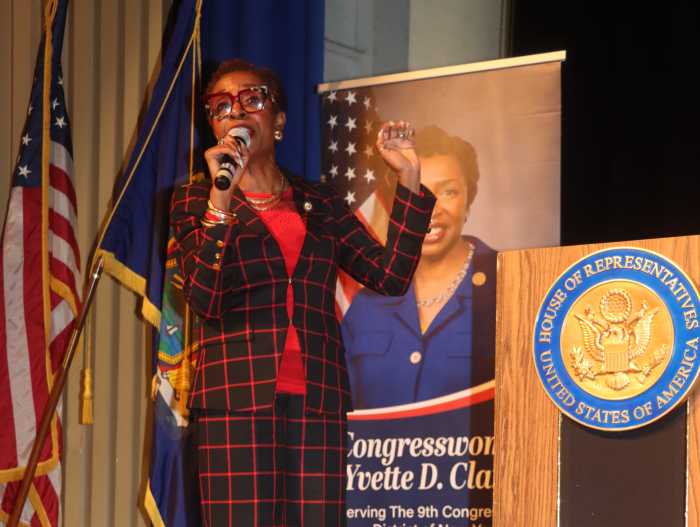US District Judge Paul A. Engelmayer, on November 6, issued an extraordinarily lengthy opinion invalidating a regulation adopted by the Trump Department of Health and Human Services (HHS) intended to protect employees in the healthcare industry who refuse to provide services based on asserting their religious beliefs.
Engelmayer’s ruling, from the Southern District of New York bench, was just the first of several such rulings from federal courts this month.
The lawsuit before Engelmayer was brought by a coalition of states, cities, and other parties, including Planned Parenthood, that stood to lose substantial federal funding for their programs if they were found to violate the regulation, which imposed stringent compliance requirements.
The plaintiffs argued that the measure violated the First Amendment’s prohibition on an “establishment of religion.” But Engelmayer rejected an establishment clause challenge that argued the regulation was unconstitutional on its face, instead premising his ruling on other arguments by the plaintiffs asserting violations of the Administrative Procedure Act (APA) and of the Constitution’s spending clause and separation of powers requirements.
Engelmayer’s summary of the regulation — adopted on May 21 of this year and originally set to go into effect on July 22, though HHS agreed to a delay after this lawsuit was filed — stated that it aimed to interpret and implement “more than 30 statutory provisions that recognize the right of an individual or entity to abstain from participation in medical procedures, programs, services, or research activities on account of a religious or moral objection.”
Conscience provisions of this type typically aim to protect employees who refuse to participate in performing abortions, sterilizations, or assisted suicides, but some go further, extending to any medical practice or procedure, and so could theoretically protect employees who refuse services to LGBTQ people based on religious or moral objections. While some of the provisions were aimed specifically at licensed healthcare professionals who actually perform such procedures, others could apply to any employee — such as an orderly, ambulance driver, or anybody else employed in a supportive role — who claim a religious or moral objection.
Engelmayer also noted a provision in Title VII of the Civil Rights Act of 1964 that requires employers to make a “reasonable accommodation” to their workers’ religious practices or beliefs, so long as such accommodation does not impose an undue hardship on the employer. The Supreme Court has traditionally interpreted that to mean no more than a “de minimus” expense.
Early in his administration, Donald Trump issued an executive order directing the attorney general to “issue guidance interpreting religious liberty protections in federal law” with the goal of doing everything permissible under the Constitution. In October 2017, Jeff Sessions issued a memorandum proclaiming that under the First Amendment’s Free Exercise Clause an individual has “the right to perform or abstain from performing certain physical acts in according with one’s beliefs,” mentioning many of the statutory conscience provisions. HHS proceeded to begin a ruling-making process translating Sessions’ dictate into regulations. Its final rule was issued this past May.
Engelmayer found that the new regulation “substantially expands” on the status quo, applying to more than 30 conscience provisions while previous regulation only included three. The regulation includes a very broad definition of what employees and entities are covered, a very broad definition of what counts as religious-based “discrimination,” and detailed procedures that healthcare employers must follow to ensure their workers know their rights to object or abstain. Significantly, these employers must certify their compliance as a condition of receiving federal funding under programs such as Medicare.
The plaintiffs advanced constitutional arguments on five separate grounds against the rule, arguing it was a violation of the establishment clause, by forcing federal funding recipients to “conform their business practices to the religious practices of their employees, imposing an absolute duty to accommodate such practices”; a violation of the spending clause because the threat of withholding all federal funding is “unconstitutionally coercive,” with conditions that are “ambiguous, retroactive, [and] not reasonably related to the purpose of HHS’s programs under which the funds are provided”; a violation of separation of powers by empowering the executive branch to unconstitutionally impound funds appropriated by Congress; void because of its ambiguities and inconsistences with other federal laws, which invite arbitrary enforcement; and a violation of patients’ due process rights to privacy and liberty, in particular by interfering with their access to abortions and other procedures to which some healthcare workers object.
Engelmayer rejected the government’s argument that the rule was merely a “housekeeping” measure consolidating existing statutory conscience provisions. Instead, he found, it made substantive changes in the law — “upend[ing] the legal status quo with respect to the circumstances and manner in which conscience objections must be accommodated” and imposing a maximum penalty of all HHS funding being terminated. He noted, for example, that a receptionist might refuse to schedule a patient for a procedure to which they had ethical objections.
In deciding that the regulation was not a violation of the establishment clause on its face — a conclusion that would have required finding that all of its provisions are unconstitutional in all their potential applications — Engelmayer acknowledged that it could be challenged “as applied” in specific situations.
The judge instead found that HHS violated the Administrative Procedure Act by adopting a regulation that went beyond the statutory policy decisions expressed by Congress. The rule, Engelmayer concluded, went over the line into legislation.
The sheer scale of the regulation’s potential impact played a large part in his decision, with the judge writing that it “put in jeopardy billions of dollars in federal healthcare funds. In fiscal year 2018, for example, the State Plaintiffs received $200 billion in federal healthcare funding. New York alone received $46.9 billion.”
Engelmayer also noted the rule’s political significance in taking positions beyond those actually expressed by Congress on controversial issues such as abortion and assisted suicide.
“In a case involving economic consequences and political dynamics on such a scale,” he wrote, “the Supreme Court teaches that ‘we expect Congress to speak clearly’ were it to delegate rulemaking authority.”
Engelmayer also concluded that HHS skirted the detailed procedures set out in the APA. The two most important flaws he identified were the agency establishing conscience provisions at odds with specific statutory language under Title VII workplace protections that addresses religious objections and its provisions also at odds with the lack of any conscience opt-outs in federal legislation regarding the provision of emergency services.
Engelmayer also noted that an agency adopting a rule that changes the law is required to document the need for the change. Here, HHS simply lied, claiming there had been a substantial increase in complaints by healthcare employees about being forced to perform objectionable procedures or being disciplined for refusing to do so.
Reviewing the complaints offered in evidence, Engelmayer found that “virtually none address the Conscience Provisions at all, let alone indicate a deficiency in the agency’s enforcement capabilities as to these laws.”
He pointed out that the large majority of religiously-connected complaints received by HHS had to do with vaccinations, “which HHS admits fall outside the scope of the Conscience Provisions and the Rule.”
Though Engelmayer did not accept the plaintiffs’ establishment clause constitutional argument, he did find violations on both separation of powers and spending clause provisions of the Constitution. The termination of all HHS funding, he found, is inconsistent with the constitutional power of Congress to appropriate funding and with requirements for unambiguous and not unduly coercive funding conditions under the spending clause.
The far-reaching violations he found led Engelmayer to vacate the regulation in its entirety. And he also rejected HHS’s suggestion — common to many Trump administration arguments when courts find its executive actions invalid — that his order be limited in effect to the Southern District of New York or just to the named plaintiffs in the case. This would lead, he said, to a proliferation of litigation around the country.
Noting that conscience provisions can protect “undeniably important rights,” Engelmayer wrote that his decision “leaves HHS at liberty to consider and promulgate rules governing these provisions. In the future, however, the agency must do so within the confines of the APA and the Constitution.”
Two days after Engelmayer’s ruling, Judge Stanley A. Bastian of the Eastern District of Washington also found the HHS regulation invalid, promising to issue an opinion soon. And on November 19, Judge William Alsup of the Northern District of California issued an opinion focusing entirely on the APA.
Alsup wrote that his order “holds that the new rule sets forth new definitions of statutory terms that conflict with the statutes themselves — expansive definitions that would upset the balance drawn by Congress between protecting conscientious objectors versus facilitating the uninterrupted provision of healthcare to Americans.”

















